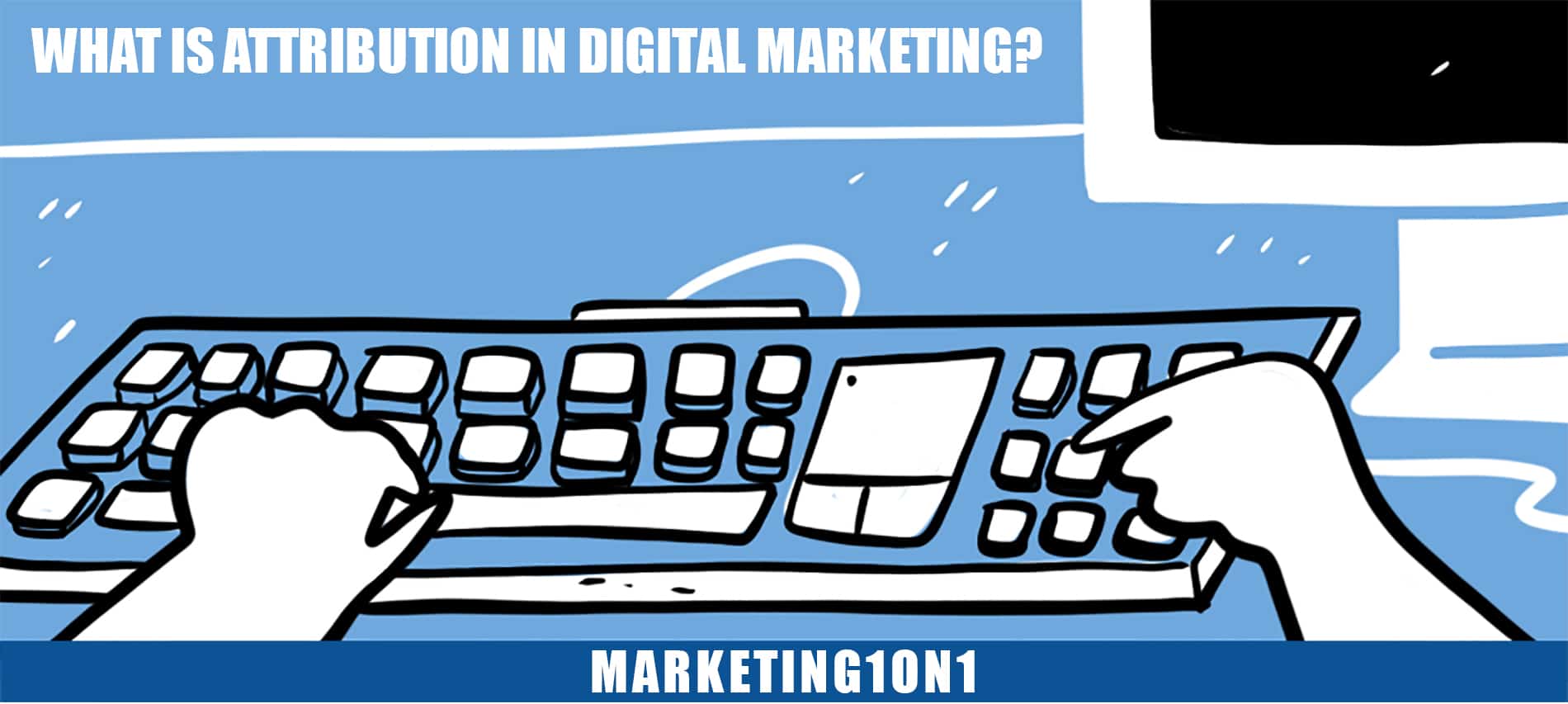- HOME
- CHECKOUT / CART
- LOGIN / REGISTER
- LINK BUILDING
- SEO
- OTHER SERVICES
- RESOURCES
- ABOUT
- About Us
- Why Us
- Testimonials
- INDUSTRIES
- Cannabis CBD Marketing and SEO
- Carpet Cleaning Marketing and SEO
- Cell Phone Repair Marketing and SEO
- Dental Marketing and SEO
- Drug Rehab Treatment Centers Marketing and SEO
- HVAC Marketing and SEO
- Junk Removal Marketing and SEO
- Law Firm Marketing and SEO
- Law Firm Website Design
- Medical and Healthcare Marketing
- Plastic Surgeons Marketing and SEO
- Plumbing Marketing and SEO
- Private Detectives / Investigators Marketing and SEO
- SaaS Marketing and SEO
- CONTACT
What is attribution in digital marketing? |

What is attribution in digital marketing?
Attribution is the process of assigning a value to each marketing touchpoint to determine which channels and activities are driving conversions. In other words, it helps you understand which marketing efforts are working and which ones aren’t. There are many different attribution models, but the most common one is last-click attribution. This model gives credit to the last channel that was clicked before a conversion occurred.
While last-click attribution is the most popular model, it’s not necessarily the most accurate. That’s because it doesn’t consider all other touchpoints that may have influenced a conversion. In this blog post, we’ll explore attribution in digital marketing in more depth and look at some of the other available attribution models.
By understanding attribution, you can make more informed decisions about your marketing efforts and allocate your budget more effectively.
The different types of attribution models
There are many different types of attribution models that can be used in digital marketing. The most common attribution models are last-click, first-click, linear, and Time Decay.
Last-click attribution gives all the credit for a conversion to the last ad the customer clicked on before converting. This is the most common attribution model because it is easy to track and measure. However, it does not give credit to all the ads that may have influenced the customer along their journey.
First-click attribution gives all the credit for a conversion to the first ad that the customer clicked on. This model is less common because it is more difficult to track and measure. However, it does credit all the ads that may have influenced the customer along their journey.
Linear attribution gives equal credit to all the ads the customer was exposed to before converting. This model is less common because it is more difficult to track and measure. However, it does credit all the ads that may have influenced the customer along their journey.
Time Decay attribution gives more credit to ads that were seen closer in time to when the conversion occurred. This model is less common because it is more difficult to track and measure. However, it does take into account how recently an ad was seen before a conversion occurred.
The benefits of attribution
There are many benefits of attribution in digital marketing. By understanding how customers interact with your brand across touchpoints, you can allocate marketing resources more effectively and make smarter decisions about where to allocate your budget. Additionally, attribution can help you better understand which channels are most effective at driving conversions and which should be given more attention. Finally, attribution data can also help you measure the ROI of your marketing campaigns and optimize your strategy for maximum returns.
The challenges of attribution
There are many challenges that come with attribution in digital marketing. For one, it can be difficult to track all of the touchpoints a customer has with your brand before making a purchase. This is especially true if you have a complex sales cycle or sell through multiple channels. Additionally, attribution can be challenging because there are many ways to attribute credit to a sale.
For example, should you attribute credit to the last ad the customer saw before converting? Or should you give credit to the first ad that they saw? There is no right or wrong answer here, but figuring out which attribution model works best for your business can be challenging. Finally, attribution can be difficult to measure accurately. There are many different tools and data sources that you can use to try to measure attribution, but none of them are perfect. This means that there is always some uncertainty when it comes to attribution measurement.
Attribution tools and software
There are many different attribution tools and software available on the market today. Some of the more popular ones include Google Analytics, Adobe Analytics, and Mixpanel. Each tool has its own set of features and benefits, so it’s important to choose one that will best meet your needs.
Google Analytics is a free tool that provides a wealth of data about your website traffic. It can help you track where your visitors are coming from, what they’re doing on your site, and how long they stay. This information can be very valuable in understanding the effectiveness of your marketing efforts.
Adobe Analytics is a paid tool that offers even more data than Google Analytics. It includes features such as advanced segmentation and custom reports. This makes it an ideal choice for businesses that need more detailed information about their website traffic.
Mixpanel is another popular option for attribution tracking. It offers a wide range of features, including heatmaps and user flows. This makes it a great choice for businesses that want to understand how users interact with their website or app.
Conclusion
Without attribution, measuring the effectiveness of digital marketing campaigns and strategies would be difficult. Attribution provides insights into which channels drive conversions and helps marketers allocate budgets accordingly. There are several different attribution models, each with its own advantages and disadvantages. The most important thing is to choose the model that makes the most sense for your business and use it consistently to track performance over time.
Our locations and Services:
Find us on Google maps for directions: Digital Marketing | SEO Las Vegas, Digital Marketing | SEO New York, Digital Marketing | SEO Phoenix, Digital Marketing | SEO Houston, Digital Marketing | SEO Atlanta, Digital Marketing | SEO Anaheim, Digital Marketing | SEO Alexandria, Digital Marketing | SEO Austin, Digital Marketing | SEO Calabasas, Digital Marketing | SEO Cleveland, Digital Marketing | SEO Corpus Christi, Digital Marketing | SEO Dayton, Digital Marketing | SEO Detroit,Digital Marketing | SEO Fort Worth, Digital Marketing | SEO Henderson, Digital Marketing | SEO Indianapolis, Digital Marketing | SEO Irvine, Digital Marketing | SEO Jersey City, Digital Marketing | SEO Knoxville, Digital Marketing | SEO Long Beach, Digital Marketing | SEO Los Angeles, Digital Marketing | SEO Medford, Digital Marketing | SEO Mesa, Digital Marketing | SEO New Orleans, Digital Marketing | SEO Palmdale, Digital Marketing | SEO San Jose, Digital Marketing | SEO Santa Clarita, Digital Marketing | SEO Santa Monica, Digital Marketing | SEO Scottsdale, Digital Marketing | SEO Sherman Oaks, Digital Marketing | SEO Seattle, Digital Marketing | SEO Tacoma, Digital Marketing | SEO Torrance

By placing an order, signing up for services from Marketing1on1 LLC or using this website you agree to Terms and Conditions and Privacy Policy
Copyright © Marketing1on1 LLC All rights reserved.
The content of this web site may not be copied, replaced, distributed, published, displayed, modified, or transferred in any form or by any means except with the prior permission of Marketing1on1 LLC.
Copyright infringement is a violation of federal law subject to criminal and civil penalties.
Blog | Accessibility Statement




